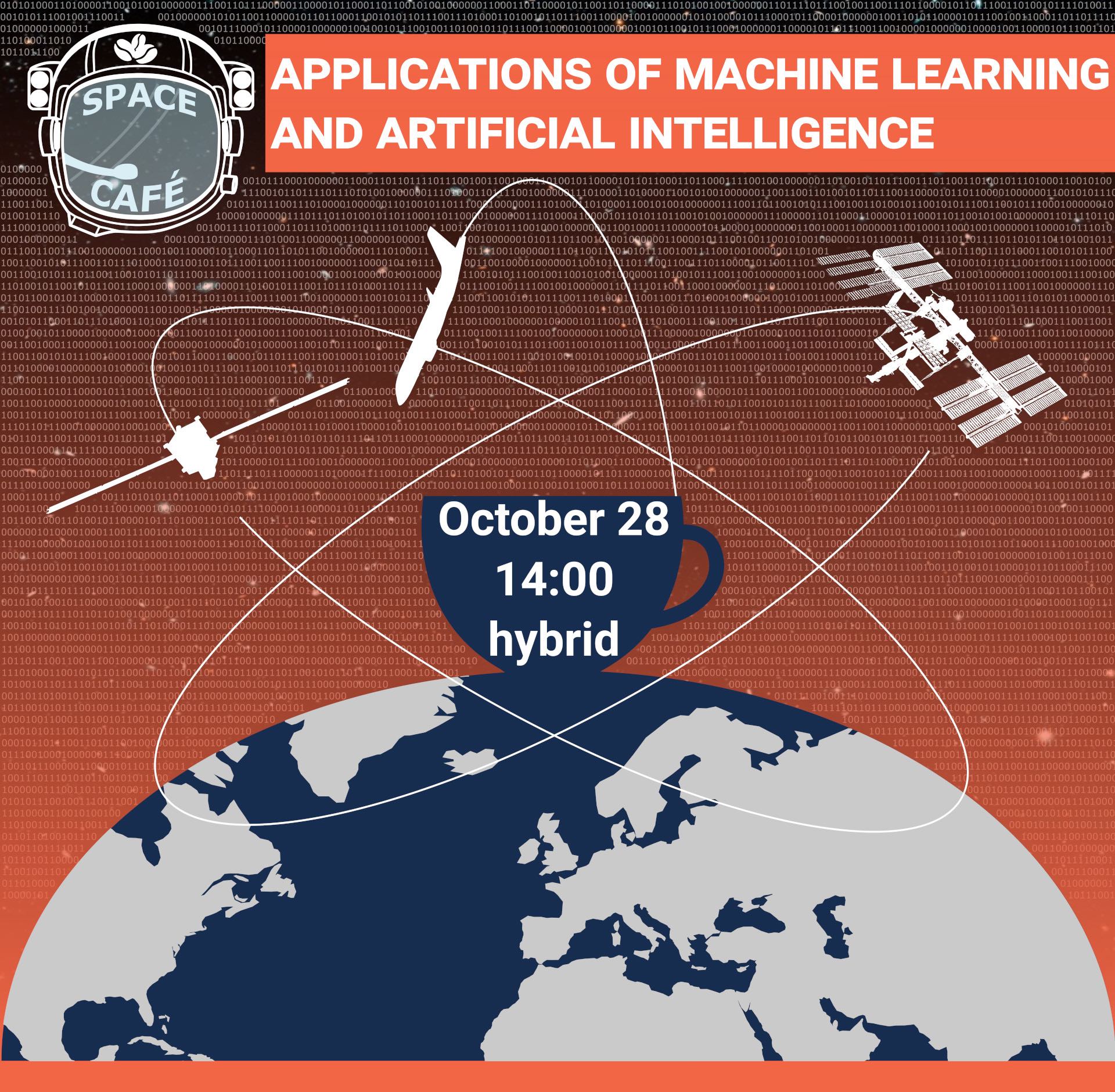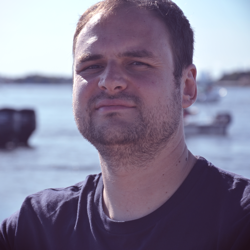Machine Learning and Artificial Intelligence applications in Astrophysics, Earth Observation and Life Sciences.

Machine Learning and Artificial Intelligence have proved to be important tools in different domains.
Join this Space Café, on October 28, 2021, at 14:00, to learn more about ML and DL applications in Astrophysics, Earth Observation and Life Science.
This event will take place in a hybrid mode, on-site (Irchel campus) and online. However, seats are limited and will be assigned on a first come-first serve basis. Registration at the end of this page
More about Space Café event series.
Noel Gorelick, Chief Extraterrestrial Observer, Google Switzerland
Noel Gorelick has been a software engineer at Google for more almost 15 years. He is one of the authors of Google Moon & Google Mars and a founder of the Google Earth Engine project. Prior to Google he helped launch 7 interplanetary spacecraft to 2 planets and 1 moon.
Machine learning has been a favorite tool of the Earth Observation community for decades, but recent advances in both ML and satellite technology have opened up this field to many new researchers, trying to apply ML to unearth ever more information and knowledge from the vast troves of EO data. In this talk, I'll present several use cases of how ML+EO is being used to answer some unique questions about not just our natural world, but to help solve societal issues as well.

Dr. Miles Timpe is a computational astrophysicist with extensive experience in artificial intelligence and machine learning. He obtained a Bachelor in Astronomy & Physics from the University of Washington, where he worked with the NASA Astrobiology Institute to assess the orbital behavior of newly discovered exoplanetary systems. He went on to develop numerical methods to rapidly characterize the habitability of exoplanet host stars, subsequently receiving a Master's degree in Astrophysics from the Erasmus Mundus Joint Master Program in Astrophysics. In March 2020, he defended his Ph.D. in Theoretical Astrophysics & Cosmology at the University of Zurich’s Institute for Computational Science, having written his dissertation on the topic of artificial intelligence in planet formation simulations. Following a postdoctoral stint, he is now the Senior Machine Learning Scientist at Zenotta AG in Zug where he works on crypto-economics.
Talk Abstract
26 years ago, the discovery of 51 Pegasi b marked the discovery of the first planet beyond our solar system. Since that discovery, astronomers have confirmed the existence of nearly 5,000 extrasolar planets. The most remarkable aspect of these planets has been their dizzying variety, which has made the development of a theory of their origin and evolution difficult to achieve. Indeed, the range of scales and physical processes involved has confounded even the most advanced numerical methods and simulations. However, the rise of machine learning and access to increased computing power have enabled novel data-driven approaches.
In this talk, I will discuss how techniques from machine learning can be used to augment and sometimes even replace expensive-to-compute aspects of planet formation simulations. In addition to being orders of magnitude faster than traditional simulations, data-driven models can enable new avenues of research in planet formation and provide novel insights into previously opaque high-dimensional processes. Specifically, I will show how classification and regression models can be trained to emulate collisions between growing planets within N-body simulations of planetary system formation.

Hendrik Strobelt has the explainability lead at the MIT-IBM Watson AI Lab (IBM Research). His work focusses on creating interactive tools that allow inspection of neural network models for explaining them (LSTMVis) and debugging them(Seq2Seq-Vis). Recently, he builts prototypes for human-AI collaboration tools for content generation (GANpaint.io) and analysis (gltr.io). His work has been published at venues like IEEE VIS, ICLR, ACM Siggraph, ACL, NeurIPS, PNAS, Science Adv, Nature BME, and ICCV. He received multiple best paper (honorable mention) awards and best demo awards. (more: http://hendrik.strobelt.com)
Talk: Human Interaction and Collaboration with Machine Learning Models
With the increasing adoption of machine learning models across domains, we have to think about the human role when interacting with these models. In the last years, my collaborators and I have created a series of tools that utilize visualization and visual user interaction to help investigate behavior of machine learning models (for NLP and CV). I will present a selection of these scientific tools that makes humans play and then understand.